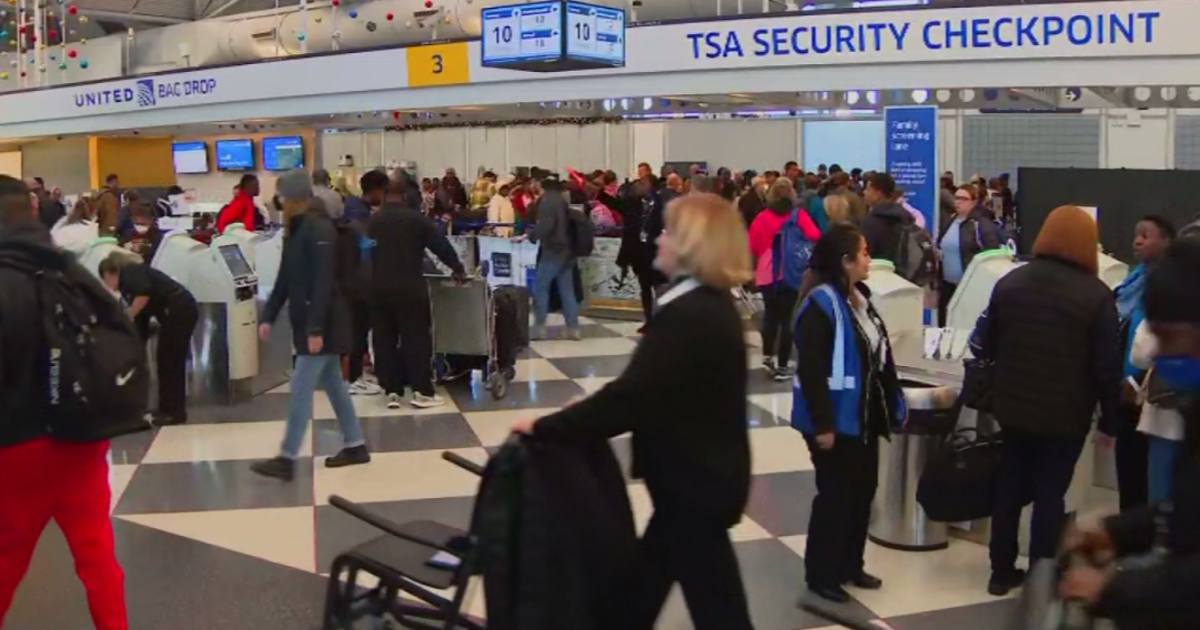Developmentally Disabled Adults In Group Homes, Facilities See Allowance Cut
CHICAGO (AP) -- Advocates want Gov. Bruce Rauner to restore a $60 monthly allowance for adults with developmental disabilities, but his administration insists there's no way to stop an automatic reduction to the allowance, especially given Illinois' finances.
People with disabilities use the pocket money for things like haircuts, coffee and movies. It comes from their Social Security checks, with the remainder routed to the state to help pay for their housing.
In the first increase in two decades, lawmakers temporarily raised the allowance last year to $60, up from $50 for people in group homes and from $30 for residents of intermediate care facilities. Now, it's returning to the lower levels in place before the law, which granted the increase for fiscal year 2015 only.
Parents, advocates and facility operators worked "long and hard" for the increase and never thought it was temporary, said Laurie Jerue, founder of Illinois Parents of Adults with Developmental Disabilities United.
"It's their money," she said. "It just seems so insulting to take away a lousy $10 a month from people who otherwise don't have any spending money."
Her 26-year-old daughter, Sarah Jerue, has autism and lives in a state-funded home in Naperville. "She'll use (the allowance) to get a special ice cream cone or coffee," Jerue said of her daughter, who is mostly nonverbal so was unable to talk about what the allowance means to her.
Rauner's administration, citing the law passed by the Legislature, said the increase expired June 30. Illinois Department of Human Services spokeswoman Veronica Vera called the change an "automatic expiration" that should not be "any great surprise."
Rauner spokeswoman Catherine Kelly referred to the budget standoff when asked about the reduction to the allowance.
House "Speaker (Mike) Madigan and the legislators he controls failed to pass a balanced budget, and refuse to consider any of the governor's reforms, which would free up resources to help the most vulnerable," Kelly said in an email.
Advocates cite administrative rules written by the state's Medicaid agency that increased the allowance. Those rules took effect March 11 and included no expiration date. The Rauner administration's interpretation of the rules is wrong, said Illinois Association of Rehabilitation Facilities CEO Janet Stover.
"As we pushed and provided information to them about the intent of the original legislation, we were told that it ultimately was a budgetary decision and they would not rescind the policy," Stover said.
The increase, which cost about $3 million a year, was the first for group home residents in 20 years and the first for intermediate care facility residents in 27 years, Stover said. The allowance has no effect on the amount of money received by facility and group home operators, she noted.
"I'm deeply frustrated the decision to rescind the policy was made by the administration and I don't believe it was necessary," Stover said. "Most disheartening is that individuals living in the community will now see fewer dollars in their pockets to be a part of the community."
(TM and © Copyright 2015 The Associated Press. All Rights Reserved. This material may not be published, broadcast, rewritten or redistributed.)



